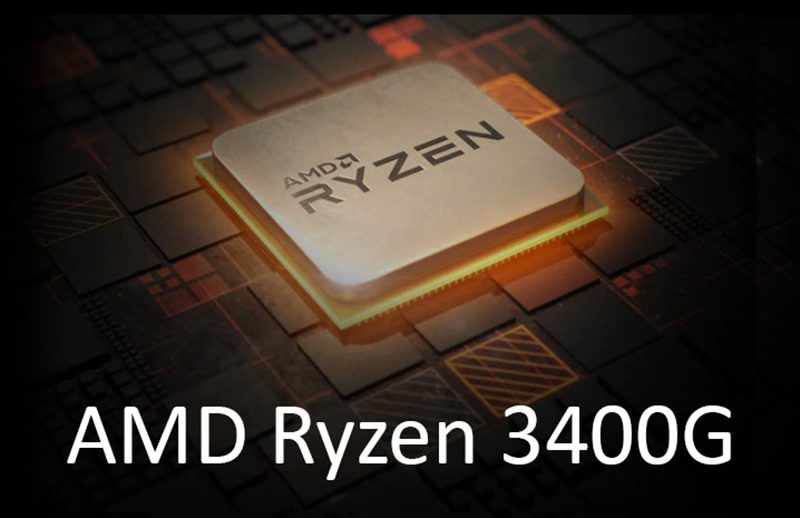Introduction

Here at The FPS Review we focus on enthusiast hardware. Often, this means taking a look at mid-range and high-end options as that typically covers the broadest range of what enthusiasts actually buy and what their interests usually are. However, enthusiast hardware can also extend into the lower-end markets. The fact is, enthusiast hardware can be found at every level. Enthusiast hardware is about getting the most you can, the best value, at each price point. Being a PC enthusiast often means building systems for other people who could be on an even tighter budget or have different needs than yourself as well.
To that end, we are taking a look at the AMD Ryzen 5 3400G. Despite how it’s named, this CPU is not part of AMD’s Ryzen 3000 series and shares nothing with the 3000 series aside from its model number. It is in fact, a 2nd generation Ryzen CPU combined with RX Vega 11 integrated graphics. This CPU actually launched at the same time as AMD’s Ryzen 3000 series processors back on 7/7/19. We’ve actually had the sample for quite some time and unfortunately, simply didn’t have time to get to it until recently.
AMD’s APUs
I’m not entirely sure why AMD’s APU’s lag the non-APU equipped CPU’s or at least, I haven’t ever heard an official explanation as to why this is the case here. However, I suspect it stems primarily from cost constraints initially. While it seems AMD could easily add a chiplet to the standard 3000 series with an APU on it, AMD designed the 3000 series as a desktop processor first. An APU adds additional complexity and in this case, cost.
Given the market for its APU’s, integrating one in with the higher end and costlier 3000 series runs counter to the concept of keeping the prices down. Of course, as is the case in the CPU world, the costs will come down and eventually that will change. There are likely many additional reasons why AMD chose to make its latest APU the way that it did as these issues often stem from a variety of complex internal issues we will likely never hear about.
iGPUs
AMD is known for being the industry leader in iGPU (APU) performance. However, this is something we didn’t have the time just now to test for. In the future, we may explore iGPU/APU specific performance. It’s unlikely the bulk of our readers ever use integrated graphics outside of occasional laptop use. The iGPU portion for the context of this review is something we will gloss over, but not cover in a great deal of depth just yet.
Intel’s Integrated GPU’s also have the additional benefit of being useful for CPU’s in its QuickSync feature or potentially for light office use or other things as a bonus. All of its CPUs are developed with performance per watt in mind which is what works best for mobile and server markets. Those designs are obviously scaled differently. In other words, Intel doesn’t build a desktop processor specifically but rather adapts its mobile parts for whatever market it needs at the time using that mobile derived design as a starting point.
AMD does things differently. AMD does, in fact, have purpose-built desktop CPUs. It’s Ryzen 3000 series was built as a desktop processor first just as Epyc was built as a server processor first. The APU’s are mobile-oriented offerings, but likely start as desktop processors with the APU added on. AMD rules the roost in terms of mobile graphics with this type of approach. APU’s are also intended for lower-end gaming hardware and the low-end market is something AMD knows well as it has been entirely relegated to it in years past. AMD’s offerings can be used in a number of ways. You can create a low-end gaming rig with one and add a discreet GPU later, allowing the creation of a functioning machine at a lower cost. Some people may find the APU satisfactory for older or simpler games.
